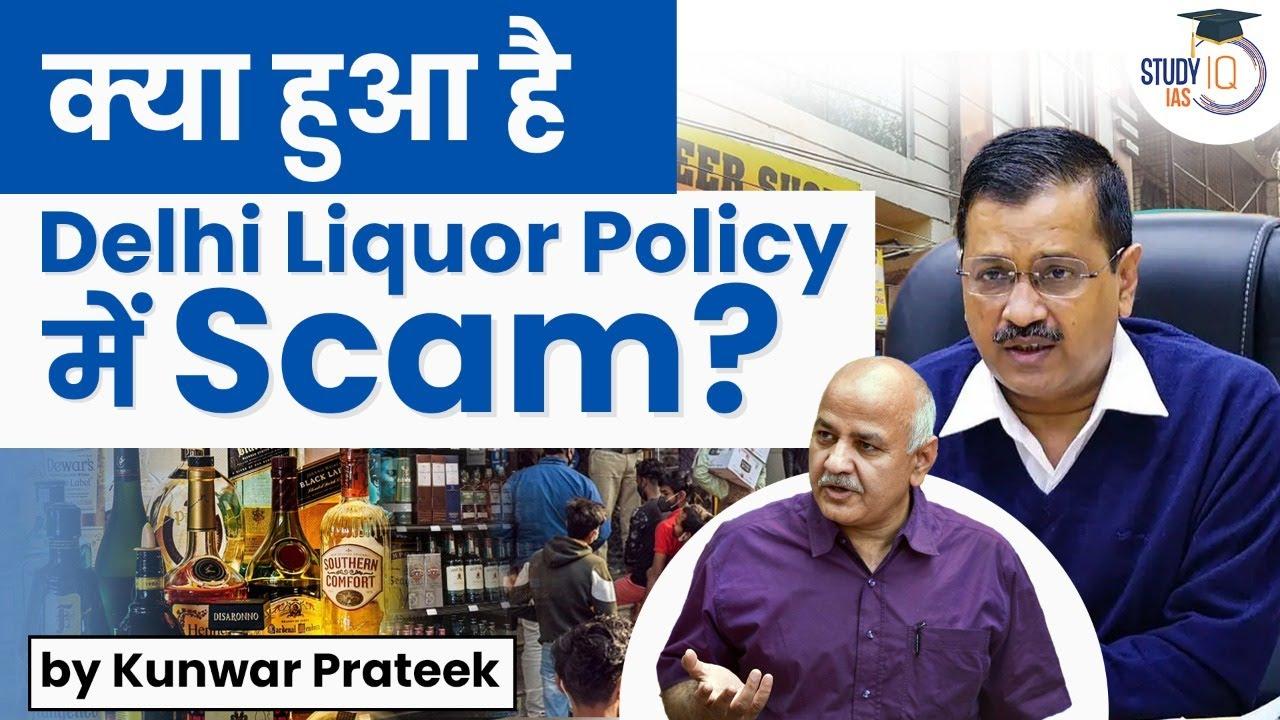Table of Contents
A Timeline of how the Delhi Excise Policy issues unfolded
Delhi Liquor Policy Timeline
- SEPTEMBER 4, 2020
- New liquor policy comes into existence based on o report by an expert committee under the chairmanship of the Excse Commissioner.
- OCTOBER 13, 2020
- The expert committee files o report after putting it in the public domain for comments and suggestions.
- FEBRUARY 5, 2021
- The report is placed before the Delhi cabinet. On ”some day, the cabinet decided to constitute o Group of ministers headed by Deputy CM Monish Sisodia with Revenue Minister Kailash Gahlot and Health Minister Satyendra Jain as the members to examine, all the aspects of the excise policy.
- MARCH 22, 2021
- Delhi cabinet accepts the report on Delhi excise reforms by the Group of Ministers.
- APRIL 15, 2021
- Delhi Excise Policy 2021-22 gets approved by the cabinet. The cabinet decision was sent to then Lt. Governor Anil Baijal for his approval but he made at least six observations and advised the government to re-examine the policy and effect proper modifications.
- MAY 21, 2021
- Give the Suggestion made by Lt. Governor another cabinet meeting take place which approved the proposal related to the modification.
- JUNE 23, 2021
- One more cabinet meeting takes place.
- NOVEMBER 5, 2021
- A proposal was approved by the Delhi cabinet to allow retail liquor vends in those areas where the development authority has cleared and given access.
- NOVEMBER 17, 2021
- Delhi government implements the Excise Policy 2021-22.
- JULY 8, 2022
- Chief Secretary of Delhi reports gross violations and undue benefits been provided to liquor licensees.
- JULY 22, 2022
- Lt. Governor VK Saxena recommends a CBl probe into alleged rule violations and procedural flows in the implementation of the excise policy.
- July 28, 2022
- Deputy CM Manish Sisodia, Who also hold the excise portfolio, directed the department to revert to the old regime of the excise policy for a period of six months till a fresh is in place
- August 19, 2022
- CBI raids residence of Deputy CM and three Other member of AAP

What is Delhi Liquor Policy Scam?
- Ushered in on November 16, 2021, Delhi’s new liquor policy had promised a sea-change — in not just the way we purchased liquor, but also in the way it was being sold. It drew curtains on the government-owned liquor vends, as the entire business went to private players.
- And for the Aam Aadmi Party government–which rode to power on the anti-corruption theme — the excise policy was a tool to stamp out liquor mafia, black marketing and increase revenue.
The New Delhi Liquor Policy rule
- Shops
- 32 Zones in Delhi
- 849 shops targeted to be opened
- 27 Shops in each zone, including 10 shops in airport zone
FOR THE CONSUMERS (Delhi Liquor Policy)
- Age bar to be lowered from 25 to 21
- Vends to have walk-in facility, be air-conditioned and well-lit
- New super vends with imported, expensive liquor to come up, will be open 1 hour longer
- People to be allowed to take away draught beer from restaurants, clubs
- Dry days to be brought at par with those in neighboring states



So what went wrong with Delhi Liquor policy?
- On the face of it, Delhi’s excise policy appeared very promising. The government earned about Rs 8,917 crore through bidding against a reserve price of Rs 7,041 crore. But it was withdrawn within eight months of being rolled out amid allegations of corruption and favouritism in license granting.
- The rollout was not smooth as thought. Only a handful of shops were able to operate on the first day. Later, around 644 liquor vends could open before retailers started surrendering licences as business became unviable.
- As the Delhi government allowed stores to sell below MRP to promote healthy competition, deep discounting by bigger retailers made the business challenging for others.
- By June, 90% of the liquor in the market was reportedly selling at nearly 50% discount. Only those licensees who also had manufacturing and wholesale operations were able to sustain the business.
- Last month, the Delhi Liquor Traders Association filed a case in the Delhi High Court, terming the new excise policy unconstitutional since it sought a lump sum payment of duty instead of per bottle. As allegations began surfacing about the undue influence of some “powerful” groups in cornering the liquor licences, the Economic Offences Wing of the Delhi Police launched a probe.
Delhi Liquor policy and Manish Sisodia Connection
First Alarm
- On July 8, 2022, Delhi chief secretary Naresh Kumar found irregularities and procedural lapses in the new liquor policy and sent a report to Lt Governor VK Saxena accusing Manish Sisodia of providing undue benefits to those holding liquor licenses. He alleged the benefits were extended in return for the money that was used by the AAP in the Punjab Assembly polls.
- The report alleged breaches of the Government of National Capital Territory of Delhi (GNCTD) Act of 1991, the Transaction of Business Rules (ToBR) of 1993, the Delhi Excise Act of 2009, and the Delhi Excise Rules of 2010. It claimed that the liquor mafia was also granted a benefit of Rs 144 crores.
- The report claimed that Manish Sisodia reportedly waived off 2144.36 crores on the license fee, to be paid by the private liquor vendors, under the pretext of the pandemic. He also caused loss to the Excise Department and provided benefits to liquor licensees by waiving the import pass fee of Rs 50 per beer case, the report claimed.
- The larger issue of policy flip-flops is a common feature throughout the country, hobbling India’s Rs 3.9 trillion alcoholic beverages market that contributes to around 1.5 million jobs.
Latest Burning Issues | Free PDF






















 WhatsApp
WhatsApp